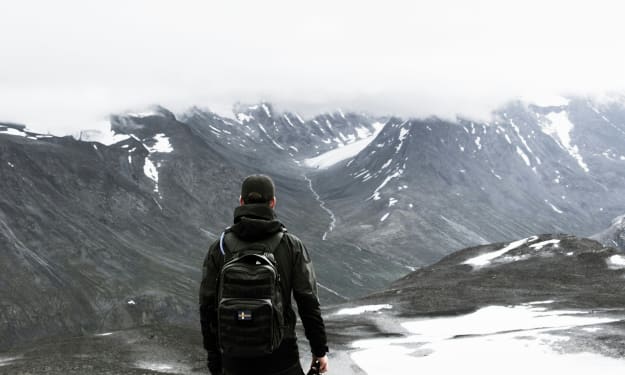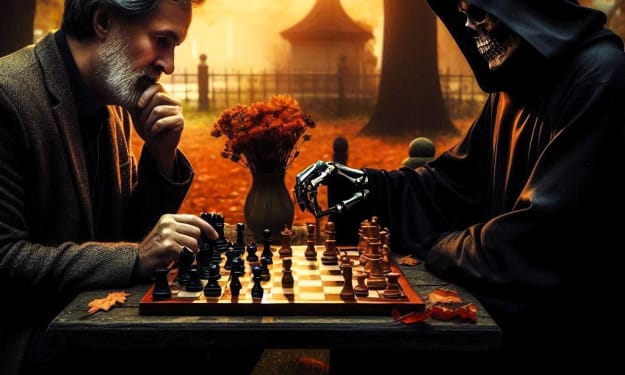It Takes A Village To Raise A Child, But Just One Person To Kill One
– individuals matter, but only when they belong to something bigger.

A human baby is a work in progress. It needs a parent, grandparents, the whole family, and the larger society to survive, grow, and become an adult. Even single parents are not alone in their job of raising a child.
We are dependent on each other. It is common sense but commonly forgotten, especially in Western thinking. Since the 1930s, neoliberalism as a school of thought has shaped our thinking to believe that it is up to us as individuals how successful we can be.
Why did all this go wrong?
Why, then, do things go so often pear-shaped? We should know that to be successful is to team up and be part of a group with the same goal and aspirations.
The answer is written in recent history: we became sacred about mass movements. It was dangerous to belong because it could lead us to be part of something horrific. Hitler, Stalin, Mao, and Putin — to name a few examples.
It became easier and safer to sing alone and avoid too enthusiastic choirs. It became more convenient in democracy to let the state take care of services for the masses as a faceless system and let the affluent people have more choices.
Ideologies degenerated into marketing slogans, memes and GIFs. It all made it easier for those who were more determined to abuse power, and they moved below the surface of society to acquire more wealth and influence.
There was no need to vote when money travelled across borders and changed hands. Good people, which happens to be the majority of us 7+ billion humans, are trying to survive and are asking just to be left alone and mind their businesses.
Consequently, we have a pandemic, several wars, famines, climate crises, etc. News is filled with horrific pictures of suffering. But we refuse to look at them as a mirror but turn our binoculars the other way around so that the horrors seem to be so far away that we don’t need to care. Or we can safely say: there is nothing I can do.
An individual can kill one baby, but genocide requires careful coordination and efficient teamwork. It was not Hitler who caused the Holocaust. The tight-knit horde of his followers took over when good people were minding their businesses and wanted to be left alone. The same is happening in Russia — and perhaps elsewhere, too. Right now.
What’s the remedy?
Seeking answers outside oneself can teach us something valuable, but only when we commit ourselves to a bigger goal and build our inner motivation and aspirations do mountains start to move.
The direction of the mountain is then the key: do we move it towards respect for life and its dignity, or do we let it crash under the selfish wants of a few instead of good for all? What is the world we are living in? What is the world we try to create? Is it that of hellish suffering or altruistic sharing of joy and resources? Those life-states dictate our reactions and responses — and guide our approach. I wrote about them in one of my blogs, ‘What Is The World You Live In Now?’.
How to create a movement for good?
In Buddhism, there is only one absolute thing. It is the sanctity of life in its diverse manifestations. When we base our thoughts, words and actions on respecting that axiom, the mountain starts moving in the right direction.
Two things make it happen. First, we need to have a strong desire to achieve our goals. In Buddhist philosophy, this desire or determination is sometimes called ichinen (one instant of thought).
When we have a strong ichinen – when we are determined and committed to something, everything in our life starts to move towards that goal. So, be warned: wishes can and will become true, even the good ones.
The Chinses scholar and monk T’ien-t’ai (538–597) tells us that ichinen:
pervades the entire universe;
includes both body and mind;
consists of both self and environment;
gives rise to good and evil; and
encompasses cause and effect simultaneously.
In layperson’s terms, our mind does everything mentioned above when determined to achieve something.
We need to be committed and determined, but it is not a movement but an aspiration. The movement starts to form when we link our goals with those of others. We need to find others who share our goals and dreams.
Itai-dōshin
“Even an individual at cross purposes with himself is certain to end in failure. Yet a hundred or even a thousand people can definitely attain their goal, if they are of one mind.” Nichiren Daishonin: Many in Body, One in Mind, WND, Vol.1, page 618.
In Buddhism, that is called itai-dōshin: many in body, one in mind. In all diversity of humankind, if we share the same aspiration for good and base it on respect for life, we can form a force within many in body but with one lofty goal in our shared consciousness.
The opposite of this is many in mind and many in body. It is anarchy when nothing matters and everything is free for individuals to hunt. As Oscar Wild put it: “A fool is someone who knows the price of everything and the value of nothing”.
Another opposite of itai-dōshin is one in body but many in mind. It is the tyranny or authoritarian rule where we must behave as we are told and keep up appearances. Putin has created this kind of group thinking in Russia based on misinformation, control and suppression. But Russia is not the only one; currently just the bloodiest one.
How do we recognise these trends?
We can see which of the three forms of unity is going on by observing people’s behaviour.
People guard their belongings frantically in anarchy and build fences around their properties. It reminds me of walking through a wealthy suburb in one of the US cities where walls were so high that the street was in shadow. It wasn’t freedom but anarchy of the rich.
In tyranny, you seldom see free smiles, and people avoid eye-to-eye contact. Once, I was in Moscow when it was still the capital of the USSR. My first impression was that nobody smiled and nobody looked me in the eye. There was a smell of fear. I guess Putin has managed to get that familiar odour back there.
When we see a society where itai-dōshin is dominant, people are not afraid of helping each other and avoid judging books by their covers. I am lucky to live in New Zealand, where we still have pockets of itai-dōshin in the community. And there are many more places like this – everywhere. The challenge is to get these good communities to join their forces, creating a movement.
Individuals matter
We are unique but part of the whole. Buddhism, at its core, propagates the ultimate freedom and happiness that comes from being uniquely us but with others. It states that compassion, wisdom, and courage should be guiding principles when setting our goals and dreaming big. It is common sense and reason but easy to forget under memes and meaningless searches for fun and fleeting fame.
The mountain I wish to move with you is achieving world peace by promoting peace, culture and education. I found my Buddhist community and goals in 1990, and since then, every day has been a day of itai dōshin for me: one thought, word and deed at a time towards that goal.
About the Creator
Jussi Luukkonen
I'm a writer and a speakership coach passionate about curious exploration of life.
You are welcome to subscribe to my newsletter, FreshWrite: https://freshwrite.beehiiv.com/subscribe






Comments
There are no comments for this story
Be the first to respond and start the conversation.